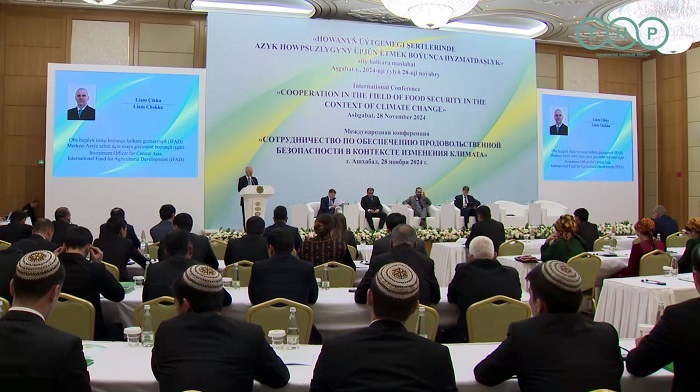 On November 28, an international conference “Cooperation on food Security in the context of climate Change” was held in Ashgabat.
On November 28, an international conference “Cooperation on food Security in the context of climate Change” was held in Ashgabat.
The forum, organized in a hybrid format, brought together the heads of relevant ministries of Turkmenistan, Deputy Director General of the Food and Agriculture Organization of the United Nations (FAO), as well as representatives of other organizations and financial structures.
The main purpose of the conference was to coordinate regional and global cooperation to ensure food security in the face of climate change. The participants discussed a wide range of issues related to the impact of climate change on agriculture and food security, as well as adaptation and mitigation measures.
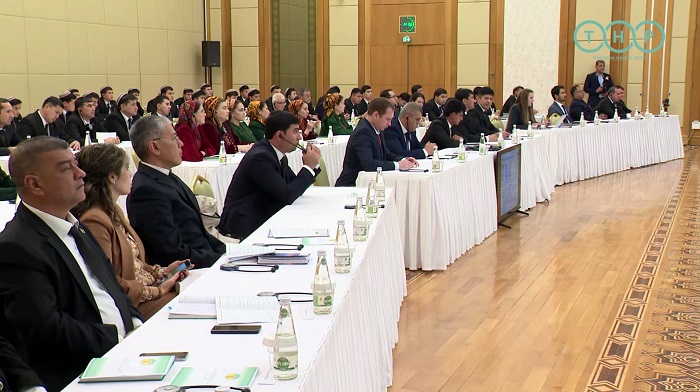 During the conference, special attention was paid to the role of Turkmenistan in strengthening regional food security. Under the leadership of President Serdar Berdimuhamedov, the agricultural sector is consistently developing in the country, its export potential is being strengthened, modern technologies and scientific achievements are being introduced.
During the conference, special attention was paid to the role of Turkmenistan in strengthening regional food security. Under the leadership of President Serdar Berdimuhamedov, the agricultural sector is consistently developing in the country, its export potential is being strengthened, modern technologies and scientific achievements are being introduced.
Turkmenistan actively cooperates with international organizations, including FAO, in the implementation of projects aimed at improving the resilience of agriculture to climate change.
An important aspect of ensuring food security is environmental well-being. Turkmenistan is taking the necessary steps within the framework of the National Climate Change Strategy and the National Forest Program. The country is actively involved in the implementation of the Sustainable Development Goals and the 2030 Agenda, putting forward initiatives to develop balanced solutions to address climate change.
The conference participants stressed the importance of introducing the concept of a “green” economy into agriculture. Turkmenistan is working in this direction, including the creation of new high-yielding seed varieties adapted to local soil conditions. Scientific research and training of qualified specialists play a key role in ensuring the sustainable development of the agricultural sector.
FAO Deputy Director General Viorel Gutu noted that agriculture and the food supply system face important tasks: conservation of biodiversity, improvement of land reclamation, rational use of water resources. Their successful implementation leads to an increase in the quality and volume of food products.
FAO is promoting such a modern solution as digitalization of agriculture based on advanced technologies. All this contributes to monitoring the condition of crops and soil, reducing costs and increasing yields.
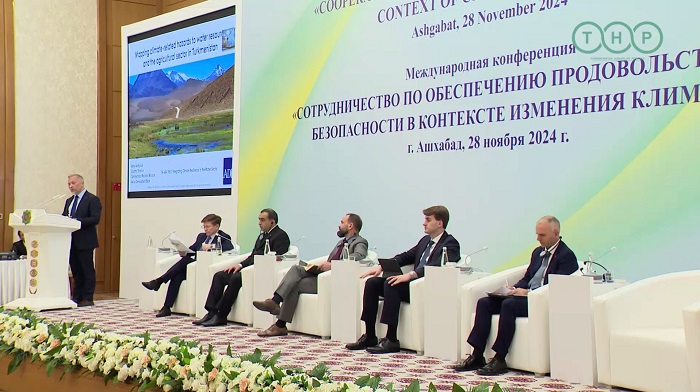 Rafael Grossi, Director General of the International Atomic Energy Agency (IAEA), spoke about the Agency’s work in the field of combating climate change and ensuring food security. He stressed the urgency of developing cooperation in this direction.
Rafael Grossi, Director General of the International Atomic Energy Agency (IAEA), spoke about the Agency’s work in the field of combating climate change and ensuring food security. He stressed the urgency of developing cooperation in this direction.
Turkmenistan actively cooperates with the IAEA in the implementation of projects related to climate change and food security.
The conference participants noted the relationship between the agricultural sector and the process of climate change. The growth of agricultural and industrial production leads to an increase in greenhouse gas emissions, which has a negative impact on the agricultural sector. In this regard, it is necessary to adapt agriculture to new conditions and coordinate joint efforts between countries.
One of the key topics of the forum was the discussion of the creation of the Regional Climate Technology Center for Central Asia (RCCT-CA), which will become an important tool in mitigating climate change impact in the region.
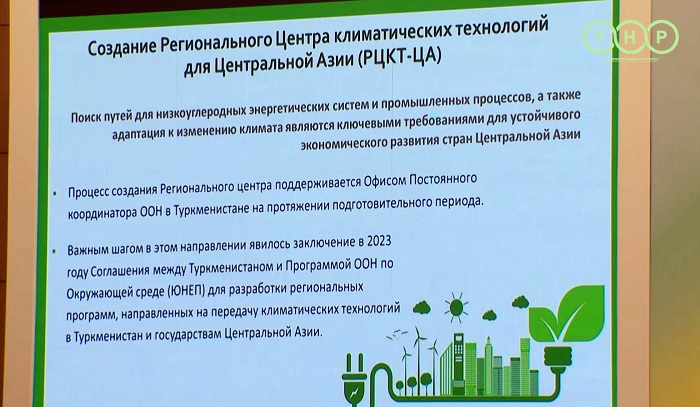 The establishment of the Regional Center is actively supported by the Office of the UN Resident Coordinator in Turkmenistan. The purpose of the Regional Center is to become a key coordination mechanism for the search, implementation and application of climate technologies in Central Asia. It will work closely with the UNFCCC Climate Technology Center and Network (CTCN), contributing to the region’s technological progress in the field of climate change.
The establishment of the Regional Center is actively supported by the Office of the UN Resident Coordinator in Turkmenistan. The purpose of the Regional Center is to become a key coordination mechanism for the search, implementation and application of climate technologies in Central Asia. It will work closely with the UNFCCC Climate Technology Center and Network (CTCN), contributing to the region’s technological progress in the field of climate change.
In addition, the center will create a reference and information hub for the transfer of climate technologies in Central Asia, as well as assist countries in conducting scientific and applied research.
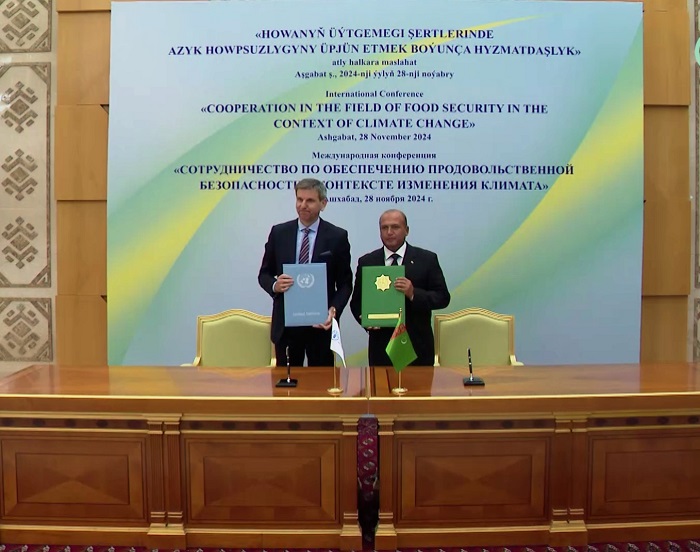 Following the conference, a document was signed between the Ministry of Environmental Protection of Turkmenistan and FAO concerning a project in the field of sustainable management of natural resources.
Following the conference, a document was signed between the Ministry of Environmental Protection of Turkmenistan and FAO concerning a project in the field of sustainable management of natural resources.
The conference also included three sections “Joint approaches to improving food security and sustainability of food systems in the context of climate change”, “Using climate finance for sustainable food and agricultural systems”, “Translating commitments into action: sharing experiences and further steps to ensure climate change resilience and food security”. ///nCa, 29 November 2024